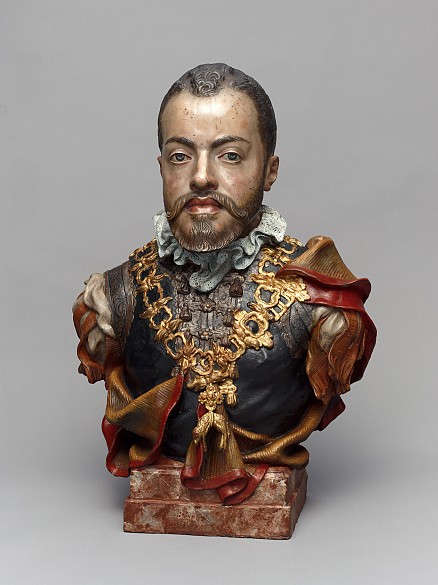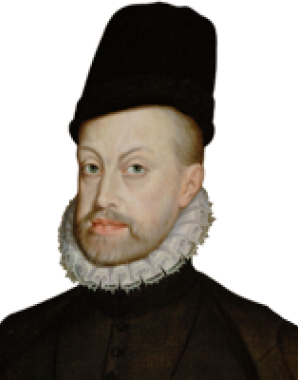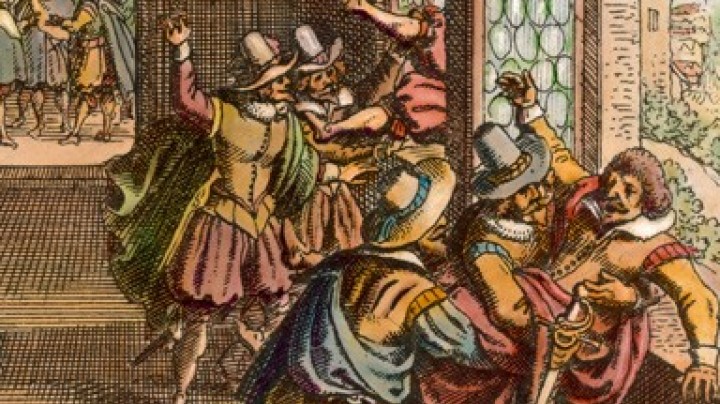Philip II: the most powerful ruler of his time
Under Philip’s rule Spain enjoyed a golden age. At the same time, however, internal and external contradictions started to become evident, making Spain a giant with feet of clay.
Philip’s dominions extended from the Spanish heartlands to the Netherlands and Burgundy, while his dominions in Italy included Milan, Naples, Sicily and Sardinia. His extra-European sphere of power grew through the enormous expansion of the colonial territories in the Americas and Asia. The archipelago in the Pacific Ocean that was incorporated into the Spanish colonies in 1564/65 was called the Philippines in his honour. In 1580 Portugal and its overseas territories also became part of the Spanish Monarchy.
However, Spanish claims to hegemony did not go unchallenged. It was France, which objected to being surrounded by Spanish territories, and England, rising to become a colonial and sea power at Spain’s expense, which constituted Philip’s most dangerous adversaries. In Central Europe the Austrian line of the dynasty, which had been assigned the role of junior partner to its powerful relatives, baulked at being dictated to by Spain. Here the influential Spanish ambassadors and envoys acted as instruments of Philip’s power. Resistance was much greater in the Holy Roman Empire, where the Protestant electors feared that Spanish Catholic hegemony would lead to the end of their freedom of religion.
Spain also had a multiplicity of internal conflicts to overcome, mostly stemming from the heterogeneity of the individual kingdoms that had their own political and legal traditions. Considerable cultural and economic differences made it impossible to impose a unified system of governance. Centralized royal power was also challenged in Italy, the Netherlands as well as in the regions of the medieval Spanish kingdoms that felt they were in tutelage to Castile.
At the time it was religious differences that were seen as posing the greatest danger to unified rule. In the northern parts of the Netherlands Protestantism had supplanted the Old Catholic Church. The Reformation reinforced the rejection of ever-increasing military and economic pressure from Spain on the Netherlandish population, which was striving for independence. Within Spain itself, Moriscos (forced converts of Moorish descent) and Jews were seen as enemies and brutally persecuted.
Philip regarded the totalitarian claim of mono-denominationalism as the most important basis of his rule. Under his rule Spain became the tutelary power of the Catholic Counter-Reformation. This was implemented with the utmost cruelty, with the result that even today the Spanish Inquisition is synonymous with intolerance and terror.













